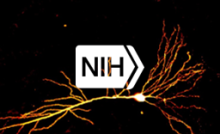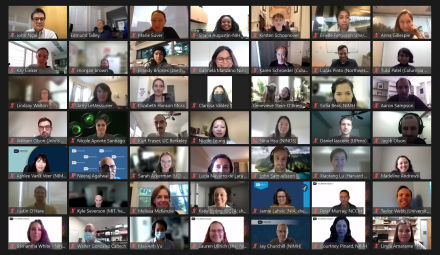
The workshop on October 26 convened BRAIN-supported trainees at various career stages, and presented perspectives from junior faculty, senior faculty, and NIH program officials.
A central goal of the NIH BRAIN Initiative is to increase training in cutting edge research approaches and techniques that align with the scientific priorities of the Initiative. Training mechanisms through the NIH BRAIN Initiative offer early career opportunities to ensure that the next generation of researchers has the necessary skills to lead new scientific breakthroughs, as well as providing cross-disciplinary career development opportunities to expand technical acumen.
On October 26, NIH staff held a virtual workshop that convened awardees of BRAIN training mechanisms at various career stages to share career experiences and job advice, learn from those who have successfully transitioned to tenure-track faculty positions, and foster a thriving community of next-generation BRAIN researchers. Attendees included grant awardees of the NIH Blueprint Diversity Specialized Predoctoral to Postdoctoral Advancement in Neuroscience (D-SPAN) Award, the BRAIN Initiative Ruth L. Kirschstein National Research Service Award (NRSA) Individual Postdoctoral Fellowship (F32), the BRAIN Initiative Advanced Postdoctoral Career Transition Award to Promote Diversity (K99/R00), and recipients of BRAIN Initiative Research Supplements to Promote Diversity in Health-Related Research.
Following opening remarks from Dr. John Ngai, Director of the NIH BRAIN Initiative, workshop attendees heard perspectives from junior faculty on successfully navigating the job market and transitioning to their new faculty positions, including Drs. Shana Augustin (NIH/NIAAA), Luis Gomez (Purdue University), Lucas Pinto (Northwestern University), and Marie Suver (New York University). The group discussed their individual, varied paths to obtaining their tenure-track positions, and shared experiences on interviewing during the COVID-19 pandemic.
The next session featured senior faculty perspectives on hiring and included remarks from Drs. Gina Turrigiano (Brandeis University) and Anne Churchland (University of California, Los Angeles). In a moderated discussion with Dr. Ngai, the group discussed the nuances of negotiating offers, the importance of clearly communicating a research program, and lessons learned from serving on hiring committees over the years. NIH program officials Drs. Ashlee Van’t Veer and Steve Korn offered additional comments on utilizing program officials as a resource throughout the transition process.
At points throughout the workshop, attendees split into breakout rooms for small-group discussions on the panels and to network with one another. Additional networking sessions offered opportunities for attendees to learn about interviewing and negotiating skills, applying for career development awards and the first R01, setting up a new laboratory, transitioning from the K99 to R00, and strategies for communicating science.
For more information on the training programs offered through the NIH BRAIN Initiative, please visit the training program page.

